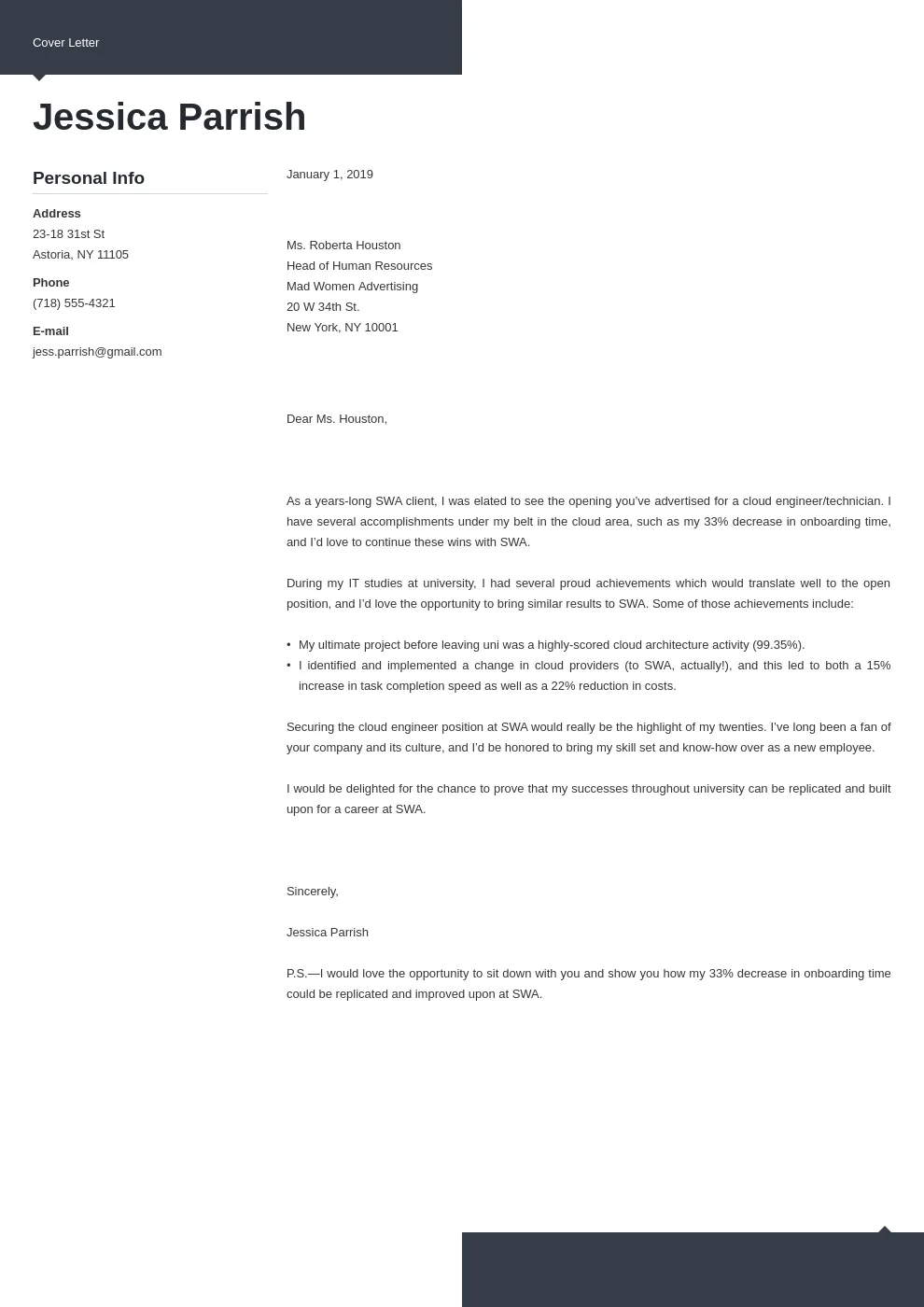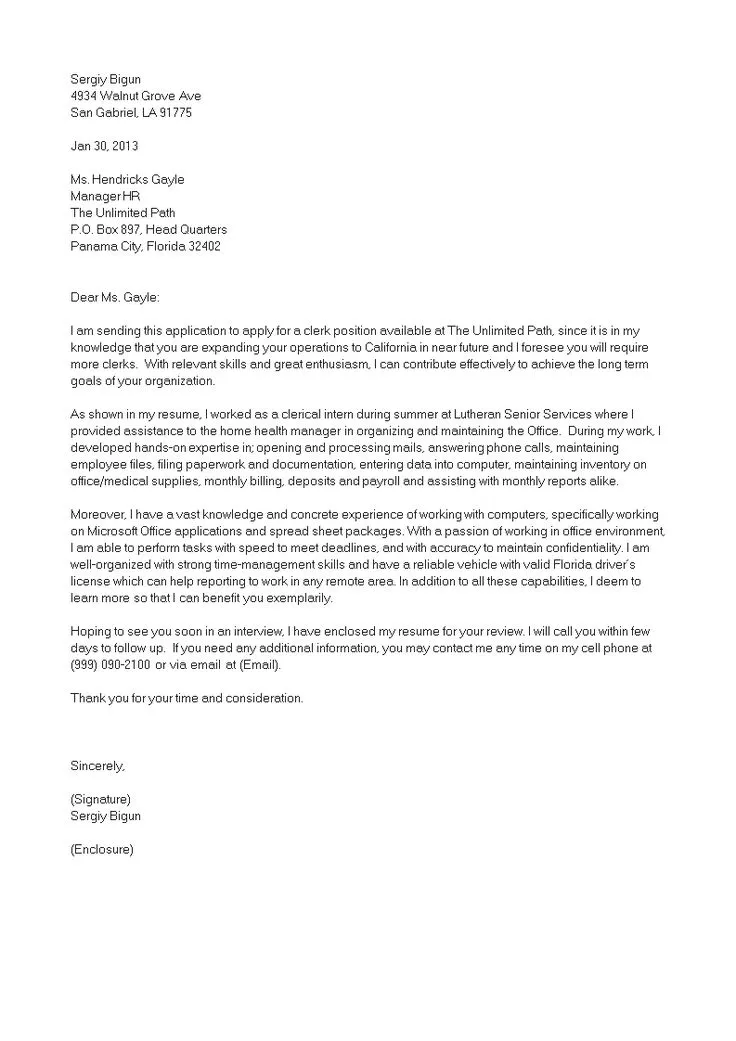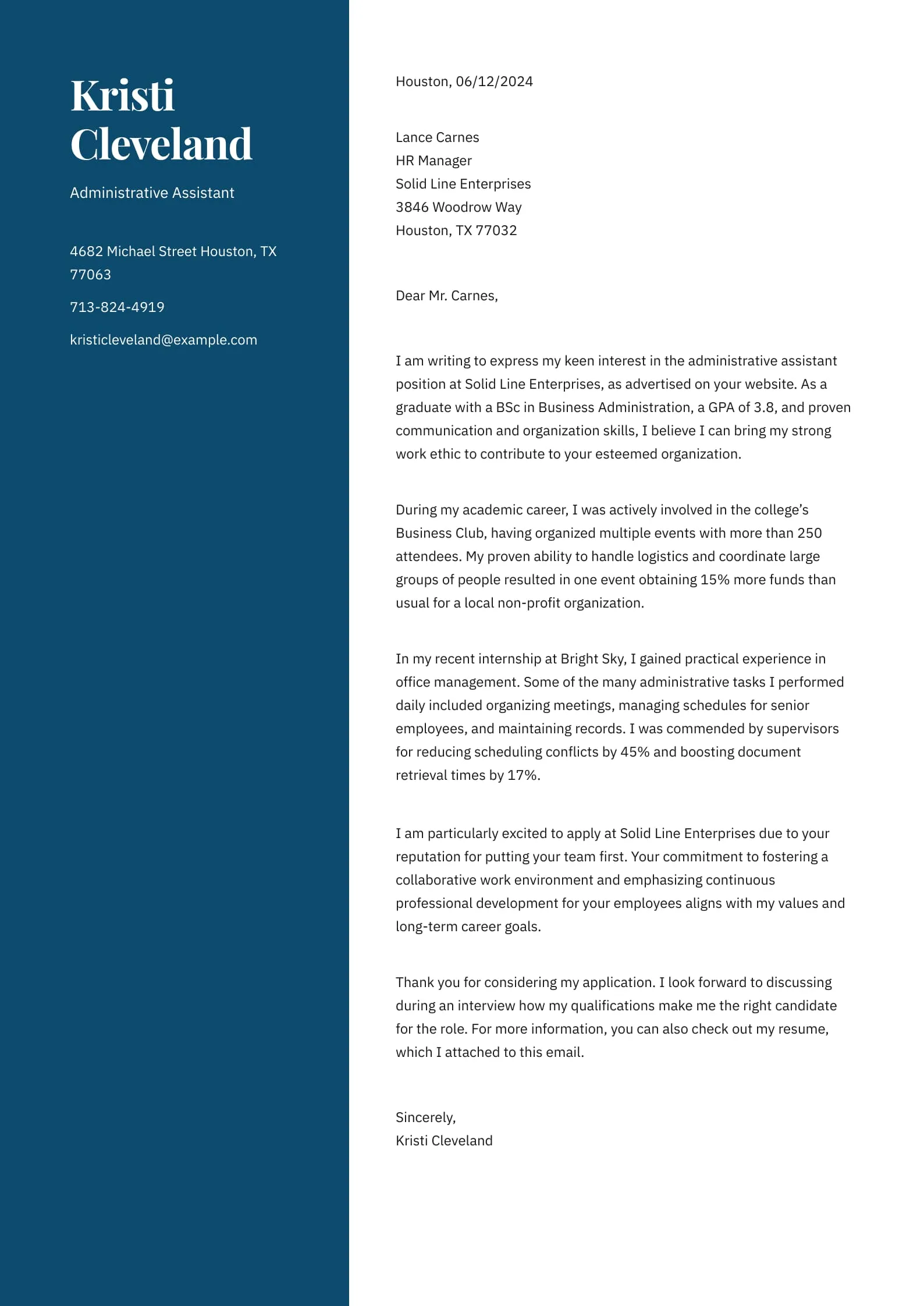Why Your Entry-Level Cover Letter Matters
In the competitive landscape of entry-level job applications, a well-crafted cover letter is your secret weapon. It’s often the first point of contact you have with a potential employer and offers a crucial opportunity to make a positive impression. Unlike your resume, which presents a factual overview of your qualifications, your cover letter allows you to inject personality, demonstrate genuine interest in the role and company, and articulate how your skills align with their needs. This is where you can paint a vivid picture of who you are, beyond the bullet points, and why you are the perfect fit. A strong cover letter can significantly boost your chances of securing an interview. It can showcase your communication skills, organizational abilities, and your passion for the industry and the specific role. A lackluster cover letter, on the other hand, might be the reason your application gets overlooked.
Highlighting Your Skills and Experience
While you might lack extensive professional experience, your cover letter is the perfect place to highlight relevant skills and experiences that you do possess. This could include academic projects, volunteer work, internships, or even part-time jobs. The key is to focus on transferable skills that align with the job description. These might include communication, teamwork, problem-solving, time management, or leadership. Provide specific examples of how you’ve utilized these skills in the past. For instance, if the job requires strong communication skills, detail a project where you successfully presented to a group or wrote a compelling report. Quantify your achievements whenever possible. Instead of saying “Managed social media,” mention “Increased social media engagement by 30% within three months.” This shows that you have the ability to drive tangible results, which is a highly valued asset for any entry-level position. Make sure to use keywords from the job description.
Demonstrate Your Enthusiasm

Employers want to hire people who are genuinely excited about the opportunity. Your cover letter should exude enthusiasm for the role, the company, and the industry. Show that you’ve done your research by mentioning specific aspects of the company that appeal to you, such as their mission, values, or recent projects. Explain why you are passionate about the industry. Discuss how the role aligns with your career goals and aspirations. This is where you can demonstrate that this isn’t just another job application; it’s an opportunity that you’re truly invested in. Avoid generic statements. Instead of saying “I am interested in this role,” try something more specific like, “I was particularly drawn to [Company Name]’s commitment to [specific company value] and believe my skills in [relevant skill] can contribute to this mission.” This level of detail shows that you are truly engaged and that you’ve taken the time to understand the company’s culture and goals. Also include how this job will help you develop or improve your knowledge and skills.
Tailor Your Cover Letter
One of the biggest mistakes entry-level job seekers make is using a generic cover letter for every application. A tailored cover letter is essential. Each application should be customized to the specific job and company you are applying to. Carefully review the job description and identify the key skills, experiences, and qualifications the employer is seeking. Then, highlight the relevant experiences and skills from your background, showcasing how they align with those requirements. Show how your skills can provide value to the company. Personalize the letter by addressing it to the hiring manager by name. This shows that you’ve taken the time to research the company and are genuinely interested in the position. Mentioning something specific about the company or the role, that you have discovered by doing some research, will help you showcase your personalized approach to the job application. This is the difference between a cover letter that gets noticed and one that is immediately discarded.
Showcase Your Personality
Your cover letter is a chance to let your personality shine through. While it’s important to maintain a professional tone, don’t be afraid to inject some of your unique voice and perspective. Share a brief anecdote that illustrates your work ethic or a skill relevant to the job. This could be a story about a time you overcame a challenge, collaborated with a team, or demonstrated initiative. The goal is to give the hiring manager a glimpse of who you are beyond your resume. This can help you make a memorable impression and differentiate yourself from other candidates. Use language that reflects your personality, but always keep it appropriate for a professional setting. Don’t be afraid to be enthusiastic and let your passion for the opportunity come through. If you’re a creative person, you can even experiment with a slightly more engaging writing style, but always ensure your letter remains clear, concise, and easy to read.
Proofread and Edit Meticulously

Typos, grammatical errors, and formatting mistakes can instantly undermine your credibility. Before submitting your cover letter, proofread it carefully and have someone else review it as well. Check for spelling errors, grammatical errors, and ensure your formatting is clean and consistent. Pay close attention to the tone and flow of your writing. Make sure it’s easy to read and that your ideas are presented clearly and logically. Use a grammar checker, but don’t rely on it entirely. Sometimes, the software may make suggestions that do not apply to your writing. Errors can be perceived as a lack of attention to detail, which is a critical skill in many entry-level positions. Ensure you have the correct company and contact information and that it’s easy to read. A flawless cover letter demonstrates your professionalism and respect for the hiring process, giving you a significant advantage over other applicants.
Follow Up After Submission
After submitting your cover letter and resume, it’s important to follow up with the employer. A week or two after sending your application, send a polite email to the hiring manager or the recruiter to reiterate your interest in the role and inquire about the status of your application. Keep the email concise and respectful of their time. Reiterate your interest and re-emphasize the value you can bring to the company. If you haven’t heard back, it’s acceptable to follow up a second time after another week or two. Show enthusiasm and that you’re serious about the opportunity. However, avoid being overly persistent or annoying. Timing is key, so space out your follow-up communications appropriately. A well-timed follow-up can show your initiative, professionalism, and dedication to the job, making you stand out from other applicants.
Key Takeaways for Entry-Level Cover Letters
Crafting a successful entry-level cover letter requires careful planning, personalization, and attention to detail. The cover letter is an extremely important component in your application package and is one of the first things a hiring manager will see. It is an introduction to your skills and experience. By following these seven tips, you can create a cover letter that captures attention, highlights your strengths, and helps you land your dream job. Remember to highlight the relevant skills that will provide value for the hiring company. When you show enthusiasm and tailor each cover letter to a specific job, you’ll show employers that you are serious about the role. And always proofread your work! It’s your chance to showcase your personality, demonstrate your enthusiasm, and articulate why you are the perfect fit. Use the tips to increase your chances of getting that all-important interview.
